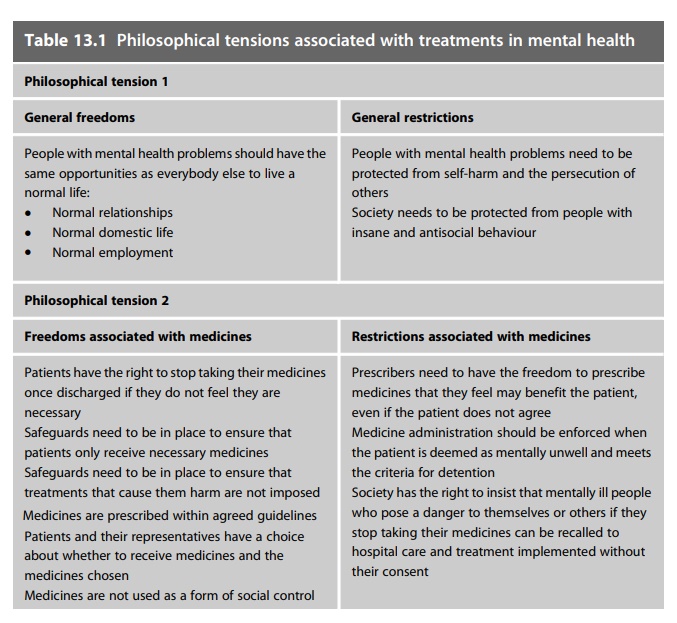Mental health law
| Home | | Hospital pharmacy |Chapter: Hospital pharmacy : Mental health pharmacy
One key difference between mental health and other aspects of healthcare is the ability to detain patients against their will using the Mental Health Act.
Mental health law
One key difference
between mental health and other aspects of healthcare is the ability to detain
patients against their will using the Mental Health Act.
The 1959 Mental
Health Act provided for patients to be treated informally but did not provide
clarity about the powers to impose medical treatment against a person’s wish.
The 1983 Mental Health Act did place legal controls on the applications of
treatments, particularly psychosurgery, electroconvul-sive therapy and
mood-altering drugs. It also moved the responsibility for formal admission to
hospital into the hands of approved social workers and psychiatrists.
The 1983 Act
provides for people to be detained for treatment using a variety of schedules:
·
to be detained for assessment (schedule 2)
·
to be detained for treatment (schedule 3)
·
to be transferred from prison to hospital for treatment
(section 37).
The 1983 Act also
provided the first opportunity for patients detained under the Act to have a
say in their drug treatment. Section 57, more commonly called the ‘Consent to
Treatment’ regulations, provides an opportunity to review the continuing
requirement for the medicines after 3 months of detention.
Inevitably any
mental health Act is a compromise between the tensions identified in Table
13.1.

Between 1999 and
2006 there was an extensive review of the Mental Health Act 1983 and attempts
to develop a new Act. One major change in the 2007 Amendment Act was the power
to detain and treat patients while discharged into the community; this is via
the community treatment order.
Related Topics
